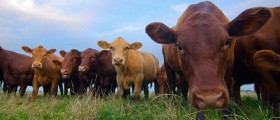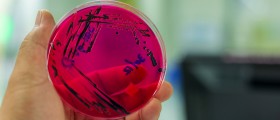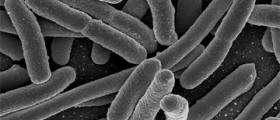This article looks briefly on why some people suffer with diarrhea after consuming red meat. Firstly, let’s define what red meat is. Red meats include lamb, beef and pork derived from mammals. All of these red meats are high in protein and calories. Consumption of these meats depends on which country you live in, for example, the USA, Australia and New Zealand consume vast amounts of red meat whereas Asian countries do not.
How you prepare and store red meats can lead to diarrhea especially if it is not cooked properly or has been stored in a refrigerator for a long time resulting in bacteria forming. The latter can also result from poor food preparation and hygiene. When eating such food it can lead to some forms of food poisoning or can trigger certain food allergies.
- If you eat more than 90g of red or processed meat a day, it's recommended that you reduce your intake to 70g or less a day. You can do this by eating smaller portions of red and processed meat, eating these meats less often or swapping them for alternatives. If you eat more than 90g of red and processed meat on a certain day, you can eat less on the following days or have meat-free days so that the average amount you eat each day is no more than 70g.
- Children over 5 should eat a balanced diet. This should include meat or other sources of protein. Children do not need as much food as adults, and the amount they need depends on their age and size. For babies and children under 5, get advice on introducing them to white and red meat, and other solid foods.
- You could also swap lamb or beef mince for turkey or vegetarian mince in your spaghetti bolognese, lasagne and chilli con carne. Try to have a meat-free day each week. Swap red or processed meat for fish or shellfish, or have a vegetarian meal.
Causes of Diarrhea after Eating Red Meat
Red meats do contain certain bacteria that are not good for our health. Once you have consumed any of the three red meats your digestive system starts to absorb a form of sugar molecule from the meat. This molecule is alien to our system as the body does not produce it naturally. In medical terms it is known as glycolylneuraminic acid (Neu5Gc).
All red meats contain E. coli but in a passive form. Due to bad hygiene and poor preparation of the meat, bacteria can activate and produce a toxic substance known a subtilase cytotoxin. If this toxic substance becomes exposed to Neu5Gc, it will attach to your intestinal lining and kidney cells and create the outcome - mild or severe diarrhea. We do not contract diarrhea every time we eat red meat but there is a possibility. Persistent diarrhea may be the result of a food allergy.
Symptoms of Diarrhea
As discussed above, once the E. coli bacterium has been activated, the first signs of poisoning, that is diarrhea and/or vomiting, can occur within 2-4 hours after consuming it. Inflammation in the stomach along with swelling of the intestines leads to painful stomach cramps.
Persistent diarrhea will lead to loss of bodily fluids leading to fever, dehydration, a cold type fever, shivering, painful headaches and weakness. If the stool becomes red with blood then this can be quiet serious and can lead to a disease called hemolytic uremic syndrome (HUS), that may affect the kidneys and become fatal.
Treatment of Diarrhea Caused by Eating Red Meat
On seeing your doctor he or she may request a stool sample and a blood test. They will advise the patient to drink plenty of fluids to compensate for the fluids loss through the diarrhea and vomiting. However, patients are to avoid any caffeinated beverages and in particular milk as these fluids will only make the condition worse. If you see your doctor on time symptoms should disappear within a few days.


















Your thoughts on this
Loading...